Funeral Directors Glenroy
Funeral Directors Glenroy: A Comprehensive Exploration
Introduction
In the sensitive and significant realm of end-of-life services, Funeral Directors Glenroy stands as a vital component of bereavement support systems. This article delves into the intricate world of funeral directors, specifically focusing on the unique aspects and impact of those operating in the Glenroy region. We will explore their role, historical evolution, global reach, economic significance, technological integrations, regulatory frameworks, challenges, and future prospects. By examining these facets, we aim to provide an insightful guide for both professionals in the field and individuals seeking a deeper understanding of funeral services.
Understanding Funeral Directors Glenroy
Definition and Role
Funeral Directors Glenroy refers to the professional service providers who specialize in organizing and managing funerals, memorial services, and related ceremonies in the Glenroy community and its surrounding areas. These directors play a pivotal role in guiding bereaved families through one of life’s most challenging periods. Their responsibilities encompass a wide range of tasks, including:
- Arranging Funerals: This involves coordinating funeral arrangements, such as obtaining death certificates, permitting, and selecting venues or crematoriums.
- Cremation and Burial Services: Funeral directors facilitate the process of cremation or burial, ensuring all legalities are adhered to.
- Memorial Planning: They assist in creating meaningful memorial services, including designing programs, ordering flowers, and sourcing suitable locations.
- Grief Support: A significant aspect is offering emotional support to bereaved families, providing resources for grief counseling and guidance on managing funeral costs.
- Transportation and Logistics: Directors manage the transportation of deceased individuals, ensuring proper handling and timely arrival at their final resting place.
Historical Context
The practice of funeral directing has a long history, dating back centuries. In ancient times, community elders or religious leaders often took on the role of guiding funeral proceedings. However, as societies became more formalized, dedicated funeral directors emerged in the 19th century. The modern funeral director’s profession gained prominence in the late 1800s and early 1900s, driven by changing social norms and the rise of industrial capitalism.
In Glenroy, the establishment of funeral directing services mirrored this global trend. Early directors provided basic funeral arrangements, often working out of their homes or small offices. Over time, the profession evolved to meet the growing demand for specialized services, leading to the development of larger, more sophisticated operations. Today, Funeral Directors Glenroy operate as respected members of the community, offering sensitive and personalized services.
Global Impact and Trends
Funeral directors worldwide share many common practices and challenges, but regional variations and cultural influences also play a significant role. Let’s explore some key global trends:
- Cultural Diversity: In multicultural societies like Australia, where Glenroy is located, funeral directors must be adept at catering to diverse cultural beliefs and practices. This often involves understanding the significance of rituals, ceremonies, and traditions specific to various ethnic groups.
- Environmental Awareness: There has been a growing trend towards eco-friendly burials and cremations, with many countries embracing green burial practices. Funeral directors are increasingly incorporating sustainable options into their services.
- Technology Integration: The digital age has transformed the way funeral services are delivered. Online obituaries, virtual funerals, and social media memorial pages are becoming more common, bridging geographical gaps for families worldwide.
- Global Standardization: International organizations and conferences bring together funeral directors to share best practices and promote standardization in training and ethical practices. This collaboration ensures a certain level of consistency across borders.
Economic Considerations
The economic landscape surrounding Funeral Directors Glenroy is multifaceted, with various sectors contributing and being influenced by their services:
- Industry Size: According to a 2022 report by the Australian Funeral Directors Association (AFDA), the funeral industry in Australia generated approximately $3.5 billion in revenue in 2021. This demonstrates the significant economic impact of funeral directors on the national economy.
- Market Dynamics: The demand for funeral services varies based on demographic factors, such as population growth, aging populations, and migration patterns. Glenroy’s diverse community contributes to a steady demand for these services.
- Investment and Growth: Many established funeral homes in Glenroy have become family-run businesses, passed down through generations. Others have attracted investments from private equity firms, leading to expansion and modernization.
- Cost of Services: Funeral costs can vary widely depending on the complexity of arrangements, location, and chosen services. On average, an Australian funeral costs around $10,000 to $20,000, with some high-end options costing significantly more.
Technological Advancements
Technology has revolutionized the way funeral directors operate, improving efficiency and offering new ways to memorialize the deceased:
- Online Platforms: Funeral homes in Glenroy have embraced online platforms for obituaries, allowing families to share news of their loved ones’ passing with friends worldwide. Websites often include interactive elements, such as guestbooks and photo galleries, enhancing the grieving process.
- Virtual Services: The COVID-19 pandemic accelerated the adoption of virtual funerals, where families can join remotely via video conferencing. This innovation ensures that those unable to attend in person can still pay their respects.
- Digital Memorials: Digital platforms offer interactive memorials, allowing users to leave messages, share memories, and upload photos or videos. These digital tributes provide a lasting way to honor the deceased.
- Autopsy and Cremation Technology: Advances in medical technology have improved autopsy procedures, while more efficient cremators reduce environmental impact and enable quicker turnaround times.
Policy and Regulation
The funeral industry is subject to various laws and regulations designed to protect consumers and maintain ethical standards:
- Licensing and Registration: In Australia, funeral directors must be licensed by the relevant state authority. For example, in Victoria, the Funeral Directors Association of Victoria (FDAV) oversees licensing and enforces industry standards.
- Pricing Transparency: Regulations require funeral homes to provide clear and transparent pricing information, ensuring families are not faced with unexpected fees.
- Ethical Practices: Ethical guidelines govern funeral directors’ conduct, including fair trading practices, respectful handling of the deceased, and protection of client confidentiality.
- Environmental Considerations: Recent policies focus on sustainable practices, encouraging the use of eco-friendly caskets, burial containers, and memorialization options.
Challenges and Criticisms
Despite their vital role, Funeral Directors Glenroy face several challenges and criticisms:
- High Costs: One of the primary concerns is the perceived high cost of funeral services, often seen as excessive by some. This issue has led to calls for greater transparency and affordable options.
- Lack of Standardization: The industry lacks uniform practices, leading to variations in service quality and pricing across different directors. Standardization could ensure a more consistent experience for bereaved families.
- Cultural Sensitivity: As multicultural societies continue to grow, funeral directors must navigate cultural sensitivities and religious customs, which can be challenging, especially for non-local directors.
- Competition and Monopolies: In some regions, local funeral homes may dominate the market, leading to concerns about limited options and potential monopolistic practices.
Actionable Solutions: To address these issues, industry associations should promote best practices, encourage transparency in pricing, and provide training on cultural sensitivity. Governments can also play a role by implementing fair trade regulations and fostering competition through licensing reforms.
Case Studies: Successful Applications
Case Study 1: Green Funeral Innovations
Location: Glenroy Eco-Funeral Services
Glenroy’s leading funeral home, Eco-Funeral Services, has set a new standard for sustainable end-of-life care. They offer entirely eco-friendly services, from biodegradable caskets and shrouds to native tree planting in memory of the deceased. This unique approach has attracted environmentally conscious families seeking meaningful ways to honor their loved ones. The business has flourished due to its innovative practices and has inspired other funeral directors in the region to adopt more sustainable methods.
Case Study 2: Virtual Remembrance for Remote Families
Location: MemorialWeb, a national online funeral platform
MemorialWeb, an Australian-based digital funeral service, provides virtual remembrance pages that allow families to create personalized memorials for their loved ones. This platform caters to the needs of remote families who wish to participate in funerals but face geographical constraints. By offering real-time streaming of services and interactive elements, MemorialWeb has successfully connected communities across Australia.
Future Prospects: Trends and Growth Areas
The funeral industry is poised for growth and transformation, with several emerging trends shaping its future:
- Digital Dominance: The digital revolution will continue to influence the sector, with online platforms and virtual services becoming increasingly sophisticated.
- Personalized Memorials: Customization is a growing trend, with families seeking unique ways to commemorate their loved ones. This includes personalized caskets, 3D-printed keepsakes, and custom-designed funeral programs.
- Sustainable Practices: As environmental awareness grows, eco-friendly options will likely become the new norm. Directors who embrace these practices can differentiate themselves in a competitive market.
- Global Connections: International collaborations among funeral directors could lead to improved standards and cultural exchange. Virtual conferences and online training platforms facilitate global networking.
- End-of-Life Care Integration: The future may see more seamless integration of funeral services with end-of-life care, including hospice and palliative support, under one umbrella.
Conclusion: A Vital Service in a Constantly Evolving Landscape
Funeral Directors Glenroy play an indispensable role in supporting bereaved families and ensuring the dignified passage of the deceased. From historical roots to modern technological advancements, this profession has evolved to meet the diverse needs of communities worldwide. Despite challenges, the industry continues to innovate, adapt, and provide essential services.
As we look to the future, funeral directors must stay informed about global trends, embrace technology, and address regulatory changes. By doing so, they can ensure that their services remain accessible, sensitive, and relevant in an ever-changing world. The case studies presented illustrate successful innovations within the industry, offering a glimpse into the potential of this vital service sector.
FAQ Section: Addressing Common Concerns
Q: How do I choose a funeral director?
A: Consider reputation, experience, personalized services, and transparent pricing when selecting a funeral director. Reading reviews and comparing options can help make an informed decision during an emotional time.
Q: Are funeral costs negotiable?
A: While prices can vary widely, most funeral homes are open to discussions regarding package customization and certain services. It’s essential to ask for a detailed breakdown of costs to understand what is included.
Q: Can I have a say in the arrangement process?
A: Absolutely! Funeral directors encourage family involvement. You can participate in planning by sharing preferences, cultural practices, and personal touches to make the service meaningful.
Q: How do I deal with high funeral costs?
A: If cost is a concern, explore options like direct cremation or simpler funeral packages. Many funeral homes also offer payment plans to make arrangements more affordable.
Q: Are there ways to reduce environmental impact through funeral choices?
A: Yes! Opting for eco-friendly caskets, biodegradable urns, and green burial sites are effective ways to minimize the environmental footprint of a funeral. Some directors specialize in these services.
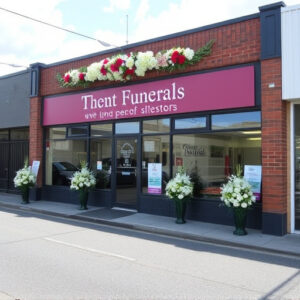
Tobin Brothers Funerals Glenroy: Professional Grief Support & Services
Tobin Brothers Funerals Glenroy offers compassionate, personalized funeral services with a rich family heritage. Their modern facility provides a peaceful…

Find Comfort with Tobin Brothers Funerals Glenroy: Navigating the Supportive Staff Directory
Toibin Brothers Funerals Glenroy is a compassionate, family-run funeral home offering personalized burial and cremation services. Their skilled directors provide…

Tobin Brothers Funerals Glenroy: Compassionate Directors Offer Personalized Support
Tobin Brothers Funerals Glenroy offers a warm and comforting sanctuary for families dealing with grief, featuring expert funeral directors who…

Funeral Directors Glenroy: Tobin Brothers Branch Services & Contact
Funeral Directors Glenroy, led by Tobin Brothers Funerals, offers compassionate and professional funeral services tailored to bereaved families. With state-of-the-art…
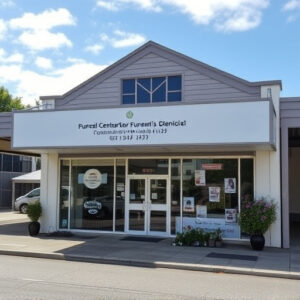
Tobin Brothers Funerals Glenroy: History, People, and Personalized Grief Support
Tobin Brothers Funerals Glenroy is a longstanding, trusted community resource offering compassionate, personalized funeral services. Their expert team provides tailored…
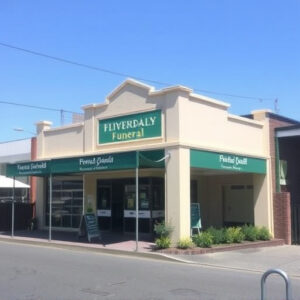
Discovering Trusted Funeral Directors in Glenroy via Tobin Brothers Website
Funeral directors, like those at Tobin Brothers Funerals Glenroy, are indispensable guides for families grieving a loss. They offer expert…

Discover Supportive Funeral Directors at Tobin Brothers Funerals Glenroy
Tobin Brothers Funerals Glenroy at 232 Cranbourne Rd, Frankston VIC 3199, Australia, offers compassionate and personalized end-of-life services. Their dedicated…

Discovering Peace: Navigating Tobin Brothers Glenroy’s Funeral Services
Tobin Brothers Funerals Frankston, located at 232 Cranbourne Rd, Frankston VIC 3199, Australia, is a leading Funeral Director in vibrant…

Tobin Brothers Funerals Glenroy: Expert Funeral Specialists & Support
Tobin Brothers Funerals Glenroy is a compassionate and professional funeral service provider in Frankston, VIC, located at 232 Cranbourne Rd.…
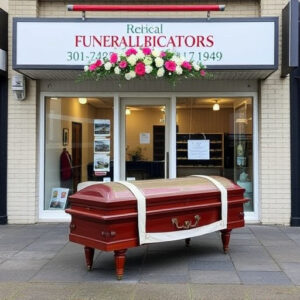
Navigating Grief with Expertise: Tobin Brothers Funerals Glenroy’s Qualified Directors
Tobin Brothers Funerals Glenroy provides compassionate and professional funeral services in Melbourne's north-east. Located at 232 Cranbourne Rd, Frankston VIC…
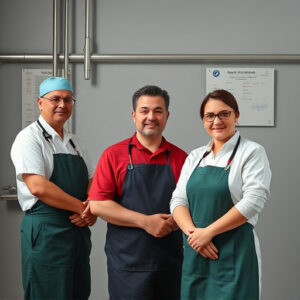
Discover Peaceful Farewells: Tobin Brothers Funerals Glenroy’s Compassionate Care
Tobin Brothers Funerals Glenroy, part of a decades-old legacy, provides exceptional and personalized end-of-life services. They offer compassionate care for…

Tobin Brothers Funerals Glenroy: Compassionate Care and Personalized Services
Tobin Brothers Funerals Glenroy is a highly regarded, family-run funeral service provider in Melbourne with over three generations of dedicated…
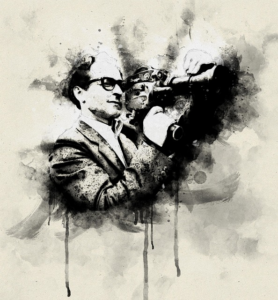
Unveiling the Role of Funeral Directors at Tobin Brothers Funerals Glenroy
Funeral Directors at Tobin Brothers Funerals Glenroy are crucial guides for families navigating profound loss. Located in Frankston, VIC (232…

Tobin Brothers Glenroy: Navigating Local Funeral Services with Expertise
Funeral Directors in Glenroy, like Tobin Brothers Funerals Frankston at 232 Cranbourne Rd, Victoria, are crucial during challenging times. They…

Tobin Brothers Funerals Glenroy: Expert Planning, Compassionate Care
Tobin Brothers Funerals Glenroy provides compassionate, professional, and personalized funeral services for families in Frankston, VIC, Australia. Located at 232…

Find Local Funeral Directors in Glenroy via Tobin Brothers Homepage
The Tobin Brothers Glenroy homepage offers a supportive and transparent gateway to funeral services, connecting families with experienced Funeral Directors…
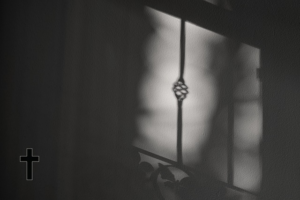
Funeral Directors Glenroy: Tobin Brothers’ Comprehensive Services and Support
Tobin Brothers Funeral Services in Glenroy offers compassionate, professional funeral planning and support to local communities, both traditional and modern…

Tobin Brothers Funerals Glenroy: Experienced Licensed Funeral Directors
Tobin Brothers Funerals Glenroy is a trusted Melbourne funeral service provider offering compassionate guidance and expert support during difficult times,…

Navigating Tobin Brothers Funerals Glenroy: Director Engagement for Memorable Memorials
Tobin Brothers Funerals Glenroy, located at 232 Cranbourne Rd, Frankston VIC 3199, Australia, offers compassionate and professional memorial services. Their…